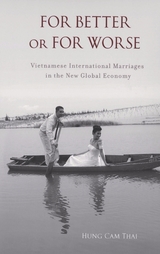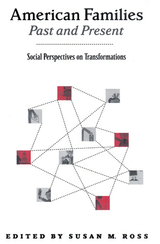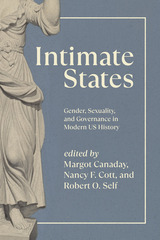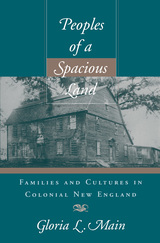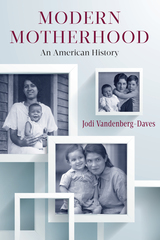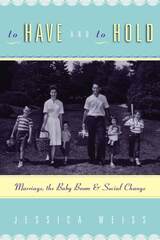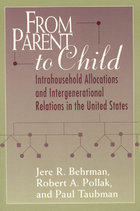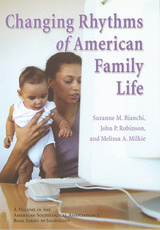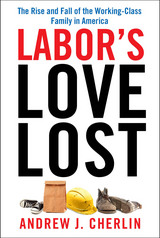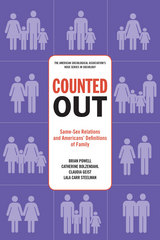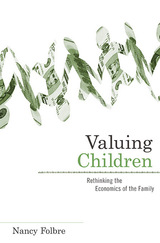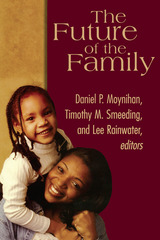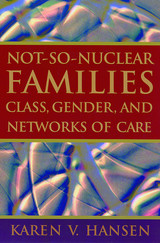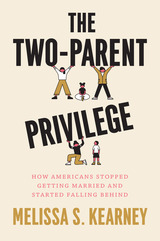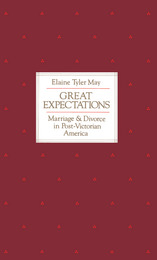From Parent to Child: Intrahousehold Allocations and Intergenerational Relations in the United States
University of Chicago Press, 1995
Paper: 978-0-226-04157-5 | Cloth: 978-0-226-04156-8
Library of Congress Classification HQ536.B43 1995
Dewey Decimal Classification 306.87
Paper: 978-0-226-04157-5 | Cloth: 978-0-226-04156-8
Library of Congress Classification HQ536.B43 1995
Dewey Decimal Classification 306.87
ABOUT THIS BOOK | TOC
ABOUT THIS BOOK
How do parents allocate human capital among their children? To what extent do parental decisions about resource allocation determine children's eventual economic success?
The analyses in From Parent to Child explore these questions by developing and testing a model in which the earnings of children with different genetic endowments respond differently to investments in human capital. Behrman, Pollak, and Taubman use this model to investigate issues such as parental bias in resource allocations based on gender or birth order; the extent of intergenerational mobility in income, earnings, and schooling in the United States; the relative importance of environmental and genetic factors in determining variations in schooling; and whether parents' distributions offset the intended effects of government programs designed to subsidize children. In allocating scarce resources, parents face a trade-off between equity and efficiency, between the competing desires to equalize the wealth of their children and to maximize the sum of their earnings.
Building on the seminal work of Gary Becker, From Parent to Child integrates careful modeling of household behavior with systematic empirical testing, and will appeal to anyone interested in the economics of the family.
The analyses in From Parent to Child explore these questions by developing and testing a model in which the earnings of children with different genetic endowments respond differently to investments in human capital. Behrman, Pollak, and Taubman use this model to investigate issues such as parental bias in resource allocations based on gender or birth order; the extent of intergenerational mobility in income, earnings, and schooling in the United States; the relative importance of environmental and genetic factors in determining variations in schooling; and whether parents' distributions offset the intended effects of government programs designed to subsidize children. In allocating scarce resources, parents face a trade-off between equity and efficiency, between the competing desires to equalize the wealth of their children and to maximize the sum of their earnings.
Building on the seminal work of Gary Becker, From Parent to Child integrates careful modeling of household behavior with systematic empirical testing, and will appeal to anyone interested in the economics of the family.
See other books on: Child | Intergenerational relations | Nature and nurture | Parent | Parenting
See other titles from University of Chicago Press

